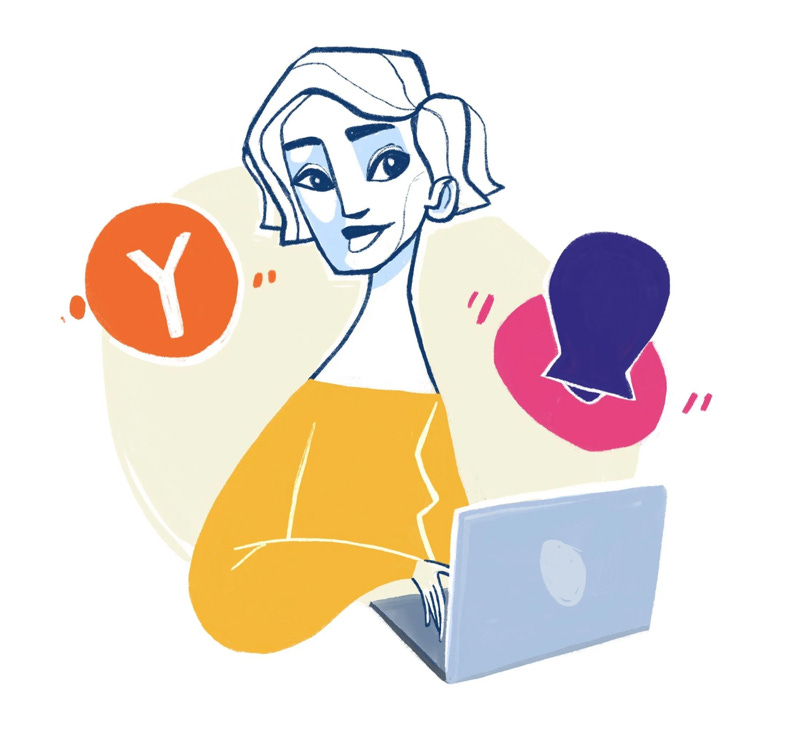Is YCombinator still worth your time?
Top insights from key opinion leaders every week
Episode #36. Hi there! I'm Gilles, repeat entrepreneur and author of The Timestamp. Last year during the lockdown, I took the time to go through the whole Startup School process, a free course about starting a company. And I even had the opportunity to pitch a startup idea up to Geoff Ralston, the legendary President of YCombinator. That moment made my day even though my idea did not get through. I realized that many YC applicants pass the cut after at least 1 or 2 failed attempts. Honestly, I learnt a lot and I am sharing this week everything you need to know about YCombinator.
Feedback from a W21 YC Alumn, Hana Mohan, experienced founder of MagicBell,
Essential startup advice from Geoff Ralston and Mike Seibel,
Looking for a cofounder,
How to launch? How should you talk to users?
All about pivoting.
This week, Patrick Kervern contributed to a few summaries published in this edition.
I hope you will enjoy this week’s special edition of YC.
#1 Latest feedback from YC
The YCombinator experience - Remote edition published in the blog of MagicBell (source article click here)W21 and curated by Patrick Kervern.
Hanoa Mohan, serial entrepreneuse aguerrie raconte son accélération chez Ycombinator et pourquoi le jeu en vaut la chandelle.
L’apport indispensable n°1 est la véritable science de Ycombinator dans le closing de financement mais ce n’est pas tout...
Le deuxième apport est la construction d’un business plan robuste qui -paradoxalement- peut ne pas avoir besoin de financement. Les deux premiers mois sont essentiellement consacrés à deux taches : construire un produit génial et construire une société géniale.
Le troisième apport et sans doute le plus précieux sont les insights subtils qu’apporte l’expérience Ycombinator : comprendre que la vision à long terme du founder de ce que son produit peut devenir est tout aussi importante que l’avis des clients du produit et du service. Les avis des autres alumni de Y combinator sur son application (et la peer pressure sur slack et bookface) sont également très précieux.
#2 Essential advice from YC
YC’s essential startup advice published in the blog of YC as part of the Startup School curriculum (source article click here) by Geoff Ralston and Michael Seibel.
🚀Launch early > Understand your users.
✍️Do things that don't scale.
🧐 Look for the 90/10 solution: 10% of effort 90% of problem resolution.
🎯Most important is to code and to talk to users rather than talking to Large Corporates and the press.
🐁Identify and focus on "a small group of customers who love you vs a large group who kind of like you". A narrow market where you ace it.
🗝Product Market Fit first > Growth comes after.
🚦Have a maximum of 1 or 2 metrics to measure your success.
🏦 Fundraise as quickly as possible and get back to work.
💸Valuation is not equal to success.
#3 Looking for the ideal cofounder
What do people want in a co-founder? YC has some answers published in TechCrunch on October 21st 2021 (source article click here) curated by Patrick Kervern.
Something like 20% of our active founders are actively looking for a co-founder says Catherine Li from YCombinator.
Proximity is obviously a criterion but on the platform, there are lots of matches that actually work in 3 different time zones.
Generally, 79% of the profiles want their co-founder to commit to a certain number of hours for a few weeks into a project, while 74% prefer to have shared interests with their co-founder.
5 skills are held in high regard — product, design, engineering, sales and marketing, and operations.
63% are looking for a partner in engineering.
YC recommends that when two profiles match, they should not become co-founders immediately in the program. Instead, YC presents an opportunity for them to figure out each other’s personality and compatibility by pitching them with a trial project to work on for weeks or even months together.
On the platform, only 13% of the founders identify as women.
#4 How to launch & how to talk to users?
How to launch (again and again) published in YouTube and part of the Startup School curriculum (source article click here) by Kat Manalac.
Launching is NOT one big shot. Launching is a continuous process.
You have to select between multiple launch strategies: silent launch, friends and family launch, stranger launch, online community launch, request access launch, social media/blogger launch, preorder, new feature/product launch A/B your pitch and test different channels.
For example, a silent launch: get a domain name, company name, and landing page and generate as many requests for access. “Record for Magic” did get 40k users with a publication on Reddit and HackerNews. If you decide to launch a waitlist on Product Hunt or HackerNews, the recommended method is to introduce yourself and explain what are you building, who you are building it for, and why? Share interesting insights from users if you have any and avoid jargon or marketing trash.
How to talk to users published in YouTube and part of the Startup School curriculum (source article click here) by Eric Migicovsky.
Best founders maintain a direct connection with their users during the entire life of their company 2 important things: either code or talk to users.
Tips when talking to a user from the book called “The Mom Test”.
DO NOT talk about your idea but about the problem you are solving. Extract user information to learn the motivations of the users, what led them to the problem.
Listen, talk less and take notes.
Look for pain points that people face regularly. Ask qeustions like “Tell me about the last time you faced this problem”, “Why was it hard?”, “What have you tried to solve that problem?” This question is important because shows how important it is for the user (because he figured 1 solution for his problem.
A valuable question leads to a better understanding of the competition ie. “What don't you love about the solution you already use?”.
#5 All about pivoting
All about pivoting published in YouTube and part of the Startup School curriculum (source article click here) by Dalton Caldwell.
‘Pivoting’ means ‘changing your idea’ according to Dalton Caldwell, YC Head of admission. Changing your idea constantly is good.
Here are some good reasons leading to pivot 👇
🤬You hate working on it,
📉No growth,
You are not the right person for this idea,
Depends too much on uncontrollable external factors,
You are out of new ideas to make it work.
Beware to follow some ideas through all the way.
People tend to naturally take too long before pivoting because:
Loss aversion,
Have a little bit of traction,
Some people are not telling you your idea is not a good one
⚽️ Pivoting is an extra shot on goal.
Where considering a new idea, YC recommends you use a “Good idea scorecard”:
How big is the idea?
Do you have a good founder/market fit? (experience in the field)
Is it easy to start?
Is it easy to find early market feedback from customers?
I hope you enjoyed this post. In case you are considering applying to YC, I can for sure share a few guidelines, you just need to share The Timestamp on LinkedIn and ping us for advice ;)




